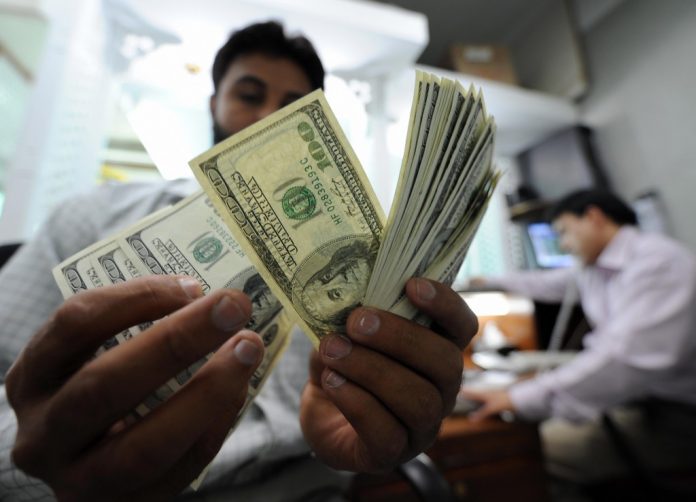KARACHI: According to the data released by the State Bank of Pakistan (SBP), overseas workers remitted $1.69 billion in March, which is up 22.2 per cent from the preceding month.
There was an increase of 4.6 per cent in monthly inflows on a year-on-year basis. Remittances grew 3.55 per cent to $14.6 billion in July-March, the data showed.
Inflows from the United States increased 10.6 per cent to $236.2 million in March while those from the United Kingdom rose 16.7 per cent to $244.2 million. Pakistani workers based in the European Union (EU) remitted $58.89 million, up 51.6 per cent from a year ago.
Inflows from the United Arab Emirates increased 15.8 per cent to $420.2 million last month. Pakistani workers based in Qatar, Bahrain, Kuwait and Oman sent home $183.8 million in March, down 6.8 per cent from a year ago.
Pakistan’s external sector depends heavily on a steady flow of remittances. The recent slowdown in the growth in monthly inflows has contributed to the ongoing deterioration on the external front of the economy. Analysts attribute the slow pace of increase in remittances to dwindling inflows from Saudi Arabia. They dropped 15.2 per cent to $348.3 million last month.
In the first nine months of 2017-18, inflows from the kingdom have decreased 9.5 per cent to $3.69 billion.
Remittances from Riyadh are shrinking as Pakistani workers adjust amidst structural changes which the Crown Prince Mohammad bin Salman is introducing to modernise the Saudi economy and reduce reliance on energy exports.
Saudi Arabia, which has traditionally been the largest source of remittances, hosts one of the largest Pakistani immigrant populations worldwide. However, most of these workers are unskilled and currently face an uncertain future in the wake of the ongoing Saudisation movement, which aims to replace a majority of foreign workers with Saudi nationals.
For example, the Saudi government imposed in July 2017 a new tax of Saudi Riyal (SAR) 100 per dependent per month on expatriates and their dependents. This tax is expected to increase gradually every year until 2020. The tax amount has doubled to SAR 200 from January 2018 and will increase to 300 riyals in 2019 and to 400 riyals by 2020.
Similarly, from January, the tax rate of 200 riyals per foreign employee per month has been increased to 300 riyals on private companies, hiring an equal number of expatriates and Saudi workers. This rate will increase to 500 riyals per employee per month in 2019 and to 700 riyals in 2020.
Saudi Arabia, along with the UAE, has also introduced a value-added tax (VAT) at 5 per cent from January on most wholesale and retail sales. According to the SBP, this tax is likely to increase the cost of living for unskilled lower income foreigners in the kingdom and the UAE.
Saudi Arabia generally hires semi-skilled or unskilled labour from Pakistan. The VAT, which is regressive in nature, is expected to affect the savings of the unskilled labour force, which will force them to send lower amounts back home.
Lastly, the Saudi government has removed the driving ban for women from September 26, 2017. From Pakistan’s perspective, this step will have repercussions as the demand for foreign drivers is likely to decrease going forward.




